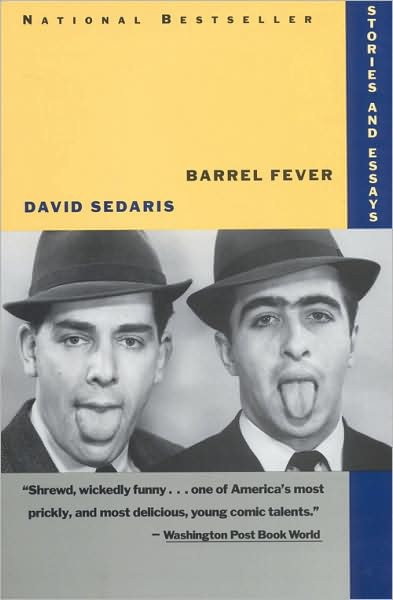
Barrel Fever
Stories and Essays
کتاب های مرتبط
- اطلاعات
- نقد و بررسی
- دیدگاه کاربران
نقد و بررسی

May 30, 1994
In this collection of short writings that both celebrate and skewer various odd elements of contemporary American culture, Sedaris, who's a regular commentator for National Public Radio, fashions a mordantly comic, outspoken and often delusional narrative, suggesting a caustic mix of J. D. Salinger and John Waters. Twelve imaginative stories and four equally colorful essays ruthlessly lampoon pet social and domestic dysfunctions, most notably the demise of the nuclear family, the epidemic of victim complexes and the apparent prevalence of stunted adolescence. ``The Last You'll Hear from Me'' is Trish Moody's suicide note, which she wants read at her funeral, excoriating an unfaithful boyfriend, a disloyal friend and an unfeeling mother. ``Glen's Homophobia Newsletter, Vol. 3, No. 2'' chronicles its title character's perceived harassment after trying unsuccessfully to seduce a clerk at the local convenience store. ``Don's Story'' is the acceptance speech for the third Oscar that Hollywood neophyte Don wins for an autobiographical film in which his father and mother are played by, respectively, Charles Bronson and Don Rickles. Closing the collection, the essay ``Santaland Diaries'' recounts Sedaris's seamy experiences working as an elf in Macy's SantaLand. Other pieces take aim at recovering alcoholics, ardent nonsmokers and ``people who overuse the words `rage' and `empowerment.' '' Sedaris ekes humor from the blackest of scenarios, peppering his narrative with memorable turns of phrase and repeatedly surprising with his double-edged wit. Just as the reader is convinced by some sharp gem of vituperation, it will turn back and cut its speaker as deeply as its subject.

May 1, 1994
Ironic, detached, cool, with an eye for the perverse and weird, Sedaris seems to have all the tools of your basic postmodern humorist. There's only one problem: the guy ain't funny. In a dozen stories and four "essays," Sedaris swings hard (not too hard; postmodern requires that you not sweat), but he rarely connects. The one hit in the collection is saved for last. "The Santaland Diaries," which originally aired on NPR's "Morning Edition," is a mordant account of Sedaris's experiences as a Christmas elf at Macy's. It could be compared with Waugh-mid-level Waugh, that is.-Thomas Wiener, formerly with "American Film"

June 1, 1994
Sedaris' sardonic wit will already be familiar to listeners to National Public Radio's "Morning Edition," but the venom he exposes in these pages proves he is more than a cuddly curmudgeon. Here he lets loose with a devastating comic ire worthy of Dorothy Parker. Demonstrating low tolerance for human foibles, his misanthropic humor is vindictive and nasty. More than once it crosses the line of good taste, but it's also extremely, relentlessly funny. The short stories in this collection dwell on themes of domestic hell and self-delusion as dysfunctional families tear each other apart and losers refuse to see how pathetic they are. The essays, some of which have in different form been heard on radio, effectively and humorously detail the seeming contemporary cultural conspiracy to destroy the individual. His "Santaland Diaries," which depicts his experiences working as an elf at Macy's during the winter holiday season, in particular is a minor classic. ((Reviewed June 1994))(Reprinted with permission of Booklist, copyright 1994, American Library Association.)

























دیدگاه کاربران